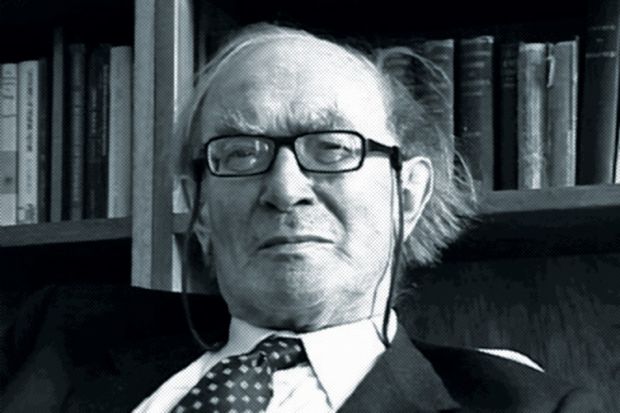James Campbell was born in Cheltenham on 25 January 1935 but brought up largely in Lowestoft, where, after evacuation to Derbyshire during the Second World War, he attended the local grammar school.
He secured an “exhibition” (bursary) and later a scholarship to study history at Magdalen College, Oxford (1952-55) and went on to start a thesis, supporting himself with work at the Birds Eye factory.
Although he initially planned to study the Domesday Book, he told an interviewer in 2009, an academic mentor warned him that “everybody who worked on it went mad sooner or later”, so he focused instead on the Scottish borders during the reign of Richard II.
After a short period as a junior research fellow at Merton College (1956-57), Professor Campbell moved to Worcester College as a tutorial fellow, where he remained for the rest of his career until he retired and became emeritus in 2002. He later served the college as senior tutor (1989-93) and professorial reader (1990-96), as well as acting as senior proctor for the whole university during a period of student unrest (1973-74).
In addition to producing important papers on the Venerable Bede, Professor Campbell made major contributions to the study of the early English Church and the early English state, once explaining that “much of what we take to be modernity in the 16th and 17th centuries was actually much older; the acceptance of the contrary view is largely due to nothing simpler than the failure to study mediaeval history”. His overview of The Anglo-Saxons (with Patrick Wormald and Eric John, 1982) soon established itself and has remained a central student text.
Alan Thacker, reader and executive editor of the Victoria County History at the University of London’s Institute of Historical Research, recalled Professor Campbell as “a polymath, with an astonishing knowledge of an extraordinary range of subjects and a taste for the recondite and the bizarre”.
“In some ways, he was highly conservative. Indeed, he had such a penchant for discerning enduring patterns and for questioning change that he had been heard to wonder how, if pressed, he could explain the emergence of such newfangled things as railways or the water closet,” he added.
“On the other hand, he had an equally strong instinct to ask the subversive question, often with irony and wit, generally without cynicism, and never with malice….To be in his company was to be constantly surprised and stimulated.”
Professor Campbell died on 31 May.


